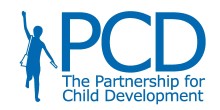Resource Bank  News
News  Bill and Melinda Gates' vision for 2030 - an Africa able to feed itself
Bill and Melinda Gates' vision for 2030 - an Africa able to feed itself
 News
News  Bill and Melinda Gates' vision for 2030 - an Africa able to feed itself
Bill and Melinda Gates' vision for 2030 - an Africa able to feed itself
 What do you think the world be like for Africa’s smallholder farmers in 2030?
What do you think the world be like for Africa’s smallholder farmers in 2030?
As laid out in their Annual Letter, Bill and Melinda Gates are pretty optimistic. Spurred on by the progress their foundation has made since its establishment at the millennium, and convinced that by further collaboration, new innovations and greater technology access, they bet 15 years from now four key outcomes will have changed the lives of the world’s poorest people more than ever before.
Agriculture is one of these outcomes, a hugely significant sector The Bill and Melinda Gates Foundation have long recognised the potential of, particularly in sub-Saharan Africa where seven out of ten people are smallholder farmers.
As they put it, investing in agriculture will see Africa achieve food security by 2030. If farmers can grow more varied and nutritious food, getting it to the people who need it, at the right time, Africa will be able to feed itself.
To do this, they outline that investments should look at:
- Improving seeds and fertilizer, which can increase farmer yields and outputs.
- Encouraging food diversity, where farmers will be able to grow a wider array of crops, with communities and farmers own families being well-nourished, living healthier lives.
- Adopting and making new technologies such as mobile phones available to farmers, so they can have access to farming information – such as weather updates and techniques, as well as which market is best for them to sell to
- Improving the way farmers store crops, so that harvests get to market at a profitable time.
 |
| The Gates Letter highlights HGSF's value in combating child malnutrition |
Imperial College London’s Partnership for Child Development shares Bill and Melinda’s optimism – this is grounded on the work the Foundation and others support us to do on developing government-led sustainable school feeding programmes which procure from local smallholder farmers.
As outlined in the letter, not only do these programmes benefit the farmers, who have a reliable predictable market through the schools to sell their produce to, but children are benefited too, being well fed, able to learn and more likely to stay in school.
These programmes we’re supporting in east, west and southern Africa, not only have differing contexts and methods of delivery, but they include varied innovations changing the way food is produced, delivered and accepted in countries’ communities.
In Ghana, its school feeding programme has recently included an innovative online School Meals Planner allowing school caterers to adapt and design nutritionally balanced cost-effective meals for children, so schools know what to buy from farmers, and farmers know what to grow for schools. Accompanying this, nutrition and hygiene education delivered throughout 395 communities sees messages on posters, the radio and directly from volunteers reach rural and remote locations.
Over in East Africa, as part of PCD’s support to Zanzibar’s Home Grown School Feeding programme, local farmers have been trained in effectively growing Orange Flesh Sweet Potatoes – a crop highly rich in Vitamin C, which by being supplied to Zanzibar’s schools is preventing this deficiency commonly found in children on the islands.
Farmers equipped with new knowledge told us how pleased they were to be able to grow more, to be connected to other farmers and as they were most excited of all about, to be able to store the potatoes for more than a month!
With big predictions for the power of technology, we are also starting a mobile phone initiative in Kenya’s Home Grown School Meals programme. This will let farmers get the reliable know-how of when schools need food, how much and what exactly they need.
HGSF programmes not only improve the livelihoods of farmers but they can create jobs for others involved in their delivery. In Osun State, Nigeria’s programme for example, in addition to 6,000 jobs for fish, cocoyam and poultry farmers, over 3,000 new jobs have been created for school caterers who feed the children, and for 100 factory workers involved in fish processing.
In its various forms of implementation and innovations, HGSF programmes are improving the agricultural sector which as Bill and Melinda put it is, “the backbone of the African economy”. By helping Africa to grow locally and procure locally through HGSF, the vision of Africa being able to feed itself is well within sight.



